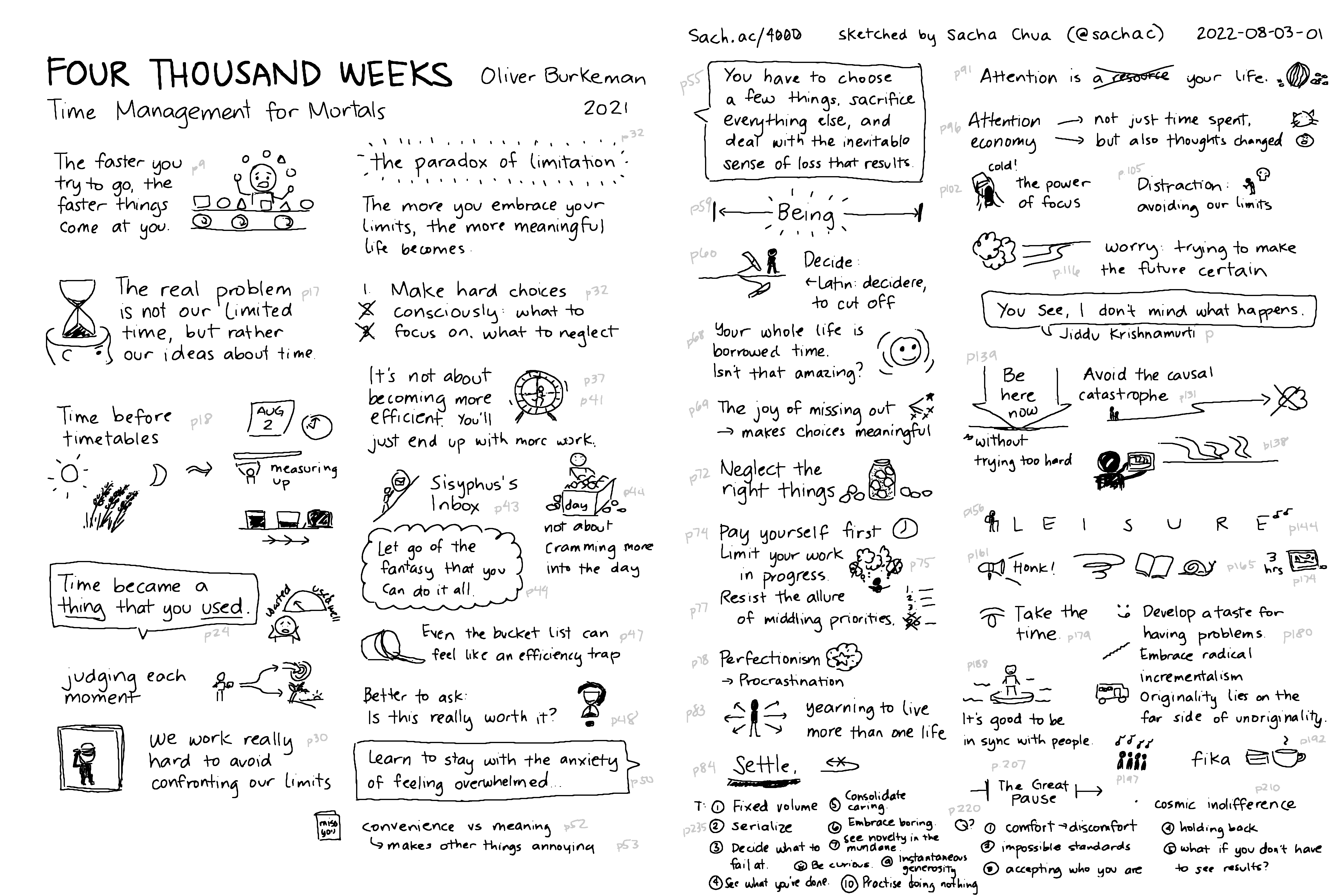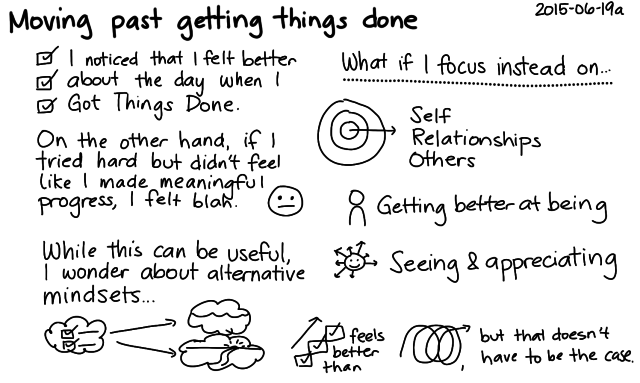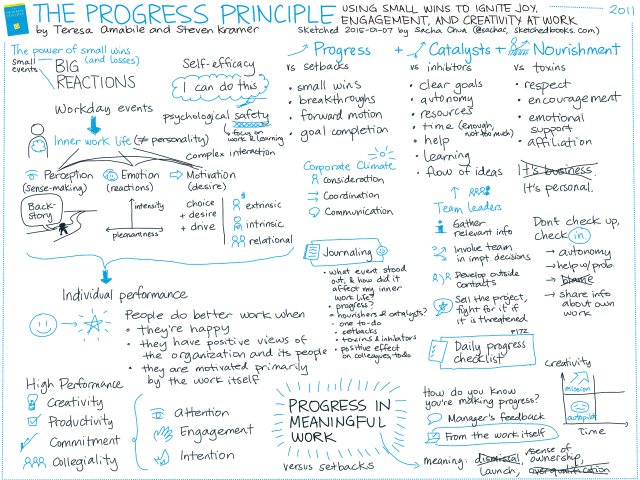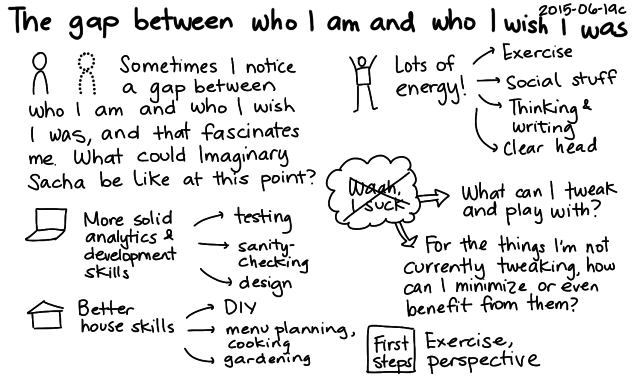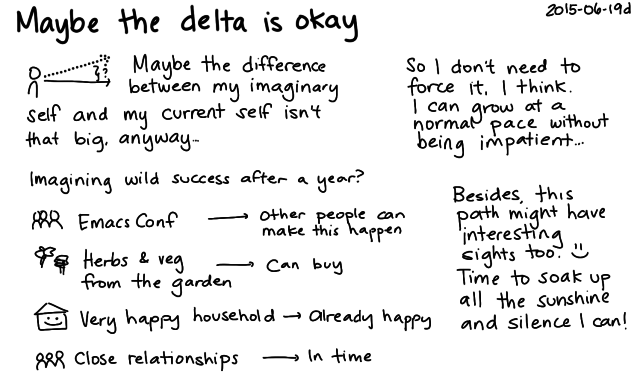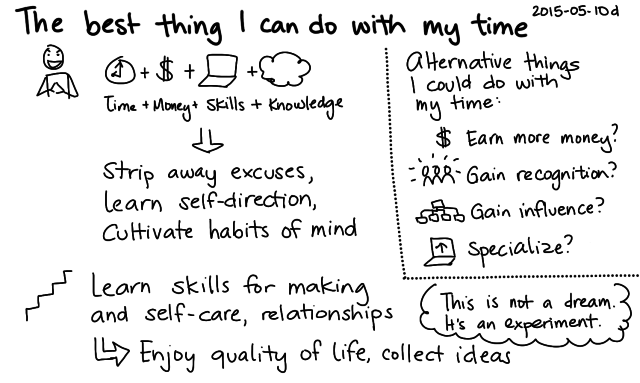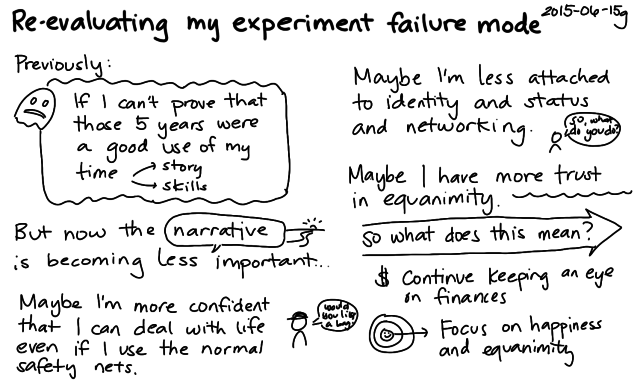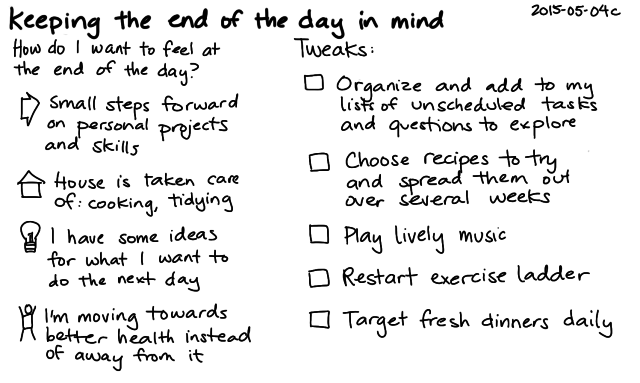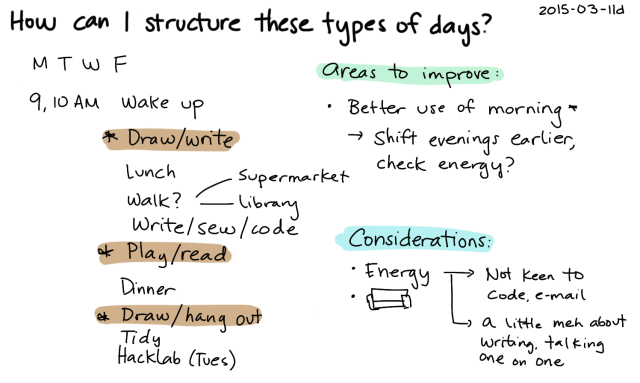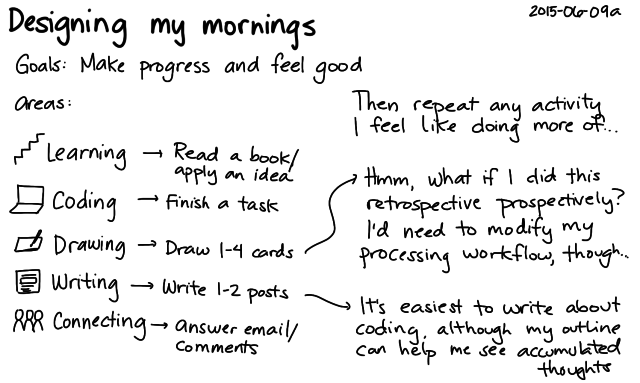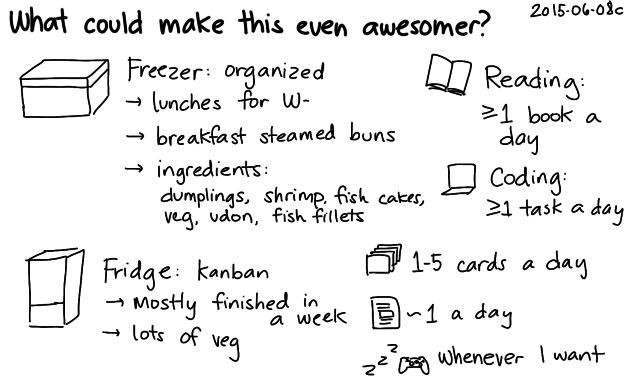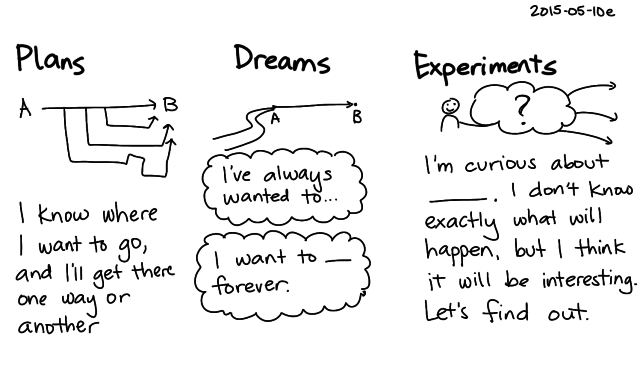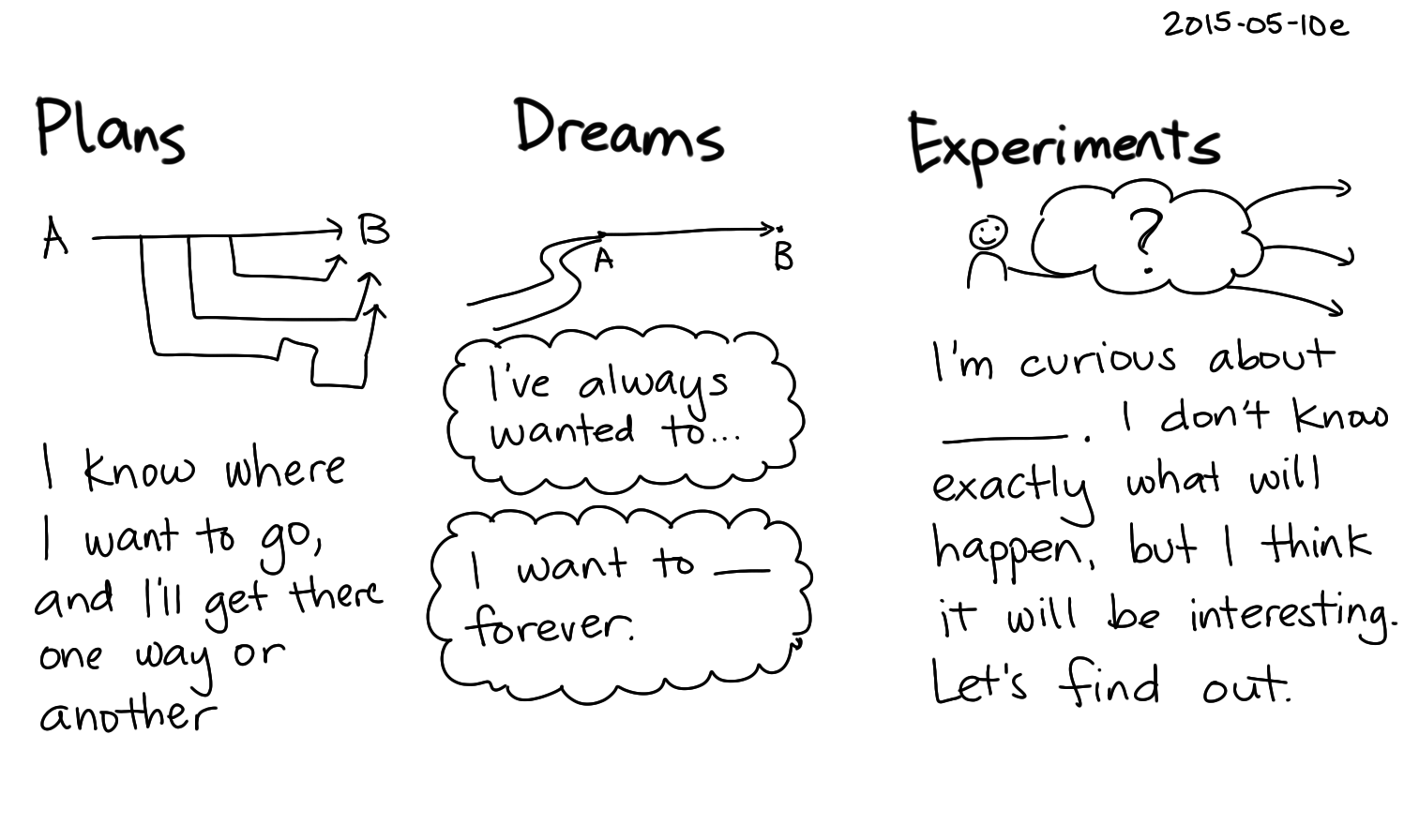Visual Book Notes: Four Thousand Weeks: Time Management for Mortals - Oliver Burkeman (2021)
| visual-book-notes, parenting, experiment
I liked Oliver Burkeman's 2021 book Four Thousand Weeks: Time Management for Mortals. It covered many of the things I've been working learning on for the past 10 years on this experiment with semi-retirement and parenting. Learning to sit with anxieties and uncertainties, accepting my limits and working with them, being here now… These are the lessons I find myself practising every day.
Some things have gotten easier. I've become comfortable with an ever-growing task list that I know I'll never clear. My default task status is SOMEDAY, and I treat the list like a buffet of ideas that I can choose from when I want to. Which is hardly ever, since I'm still living on kid time and have very little focused time for myself. Most days I'm okay with this, as childhood is fleeting and my main challenge is to really be here for it. This is tough. I've been learning that I'm very human. I turn into a hangry ogre if we're out too late. I grump at A- if I get too tired. I work on separating the shark music of my anxiety from what's really going on. We joke about my squirrel brain and find ways to deal with its limits. I've given up many of my illusions about control. Knowing that I still have lots to learn even though I'm almost 39 makes it much easier for me to appreciate A-'s being 6. My journal helps me see how the days build up into months and years. I'm still on the anxious side, but W- helps balance that, and developing resourcefulness and resilience will help too.
While the book is mostly about confronting and working with the limits of being mortal, it also had some interesting thoughts about the value of being in sync with other people. Tangling my life up with W- and A- has helped me learn about things I would never have stretched myself to do on my own. I can see how A- enjoys playing with her friends. We've decided to go with virtual school for Grade 1 to minimize COVID risks (and I've been keeping an eye on monkeypox news too, ugh). I wonder if we can get a full synchronous exemption again this year. It's been nice following A-'s interests. But we did kinda miss out on group experiences of music and dance, and I'm not sure I'll find outdoor classes for those within walking distance. Online classes exist, but then we'll need to sync up with someone else's schedule. Maybe someday, if A- wants it strongly enough. Here I remind myself not to worry too much about her future, not to try to orchestrate things too much. It is enough to observe, support, and join her in learning. Besides, we can still have fun with clapping games and tea parties.
Anyway. Mortality. Cosmic insignificance. I can attest that thinking about these things can be surprisingly reassuring. All we can do is what we can do, and that's enough. Tomorrow I will dress and eat and brush teeth and play and tidy and do other things that I do every day. Against this backdrop of mostly-sameness, A- grows. If I pay attention, I may even notice it–for just as unexpected lasts sneak up on you, unexpected firsts do as well. If I pay attention, I might notice I'm growing too.

